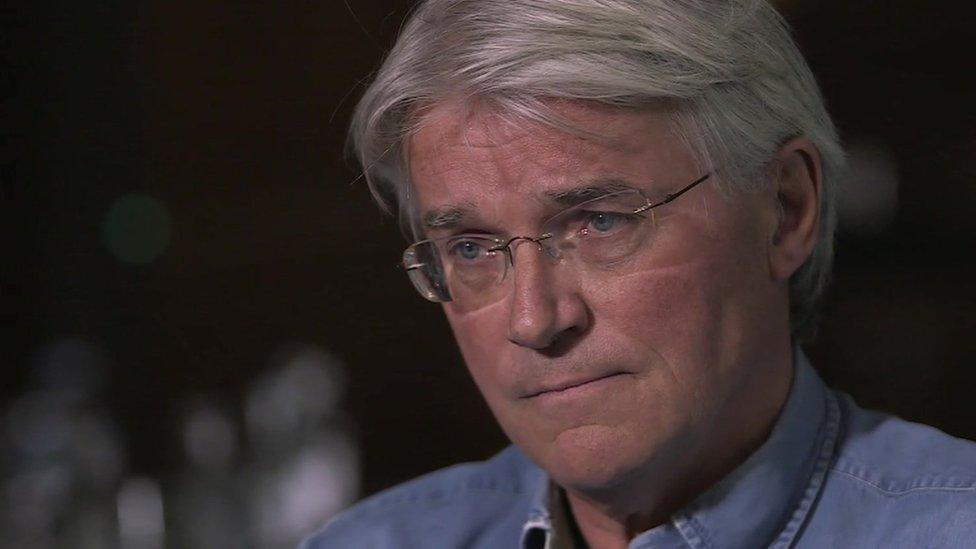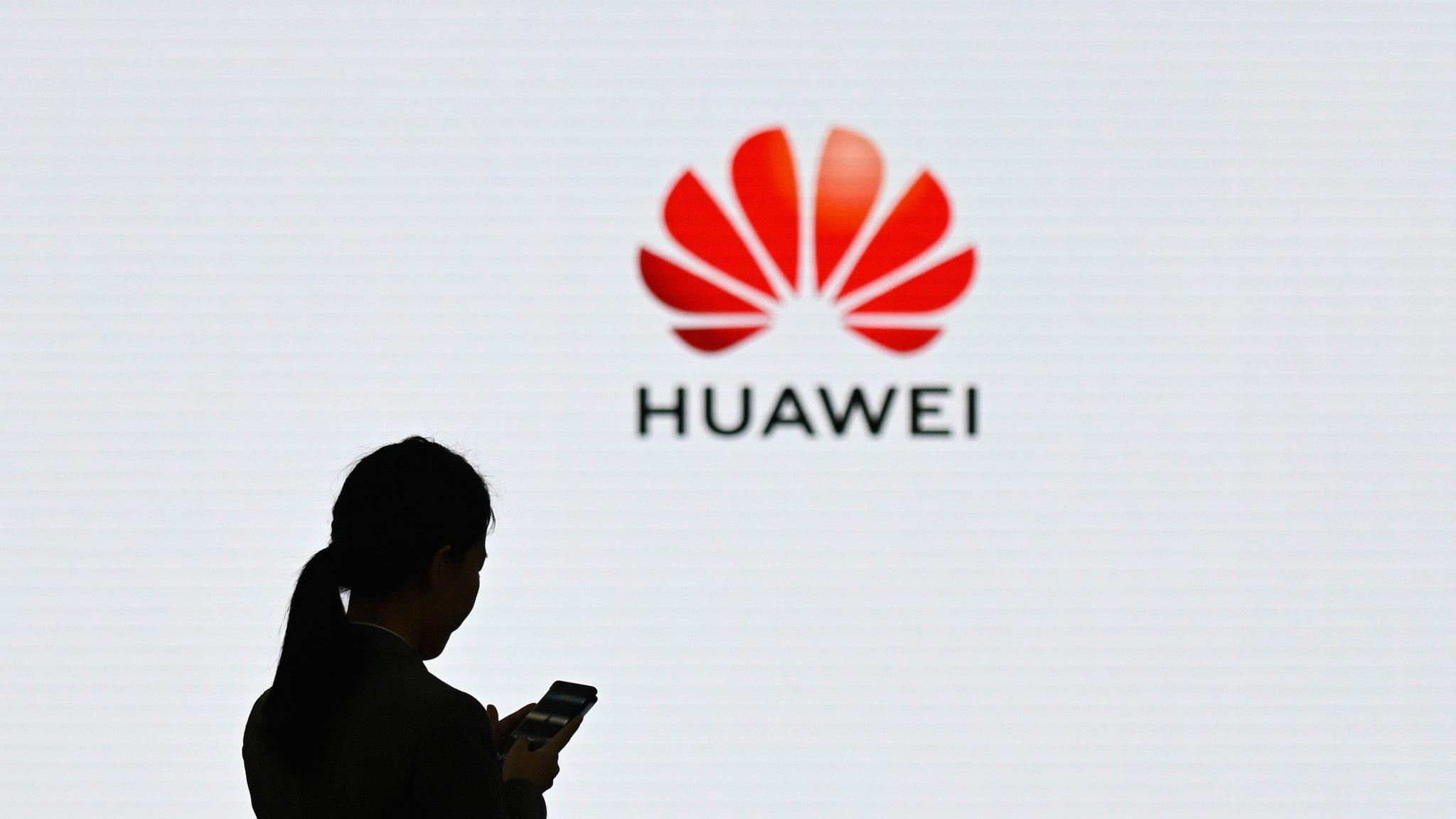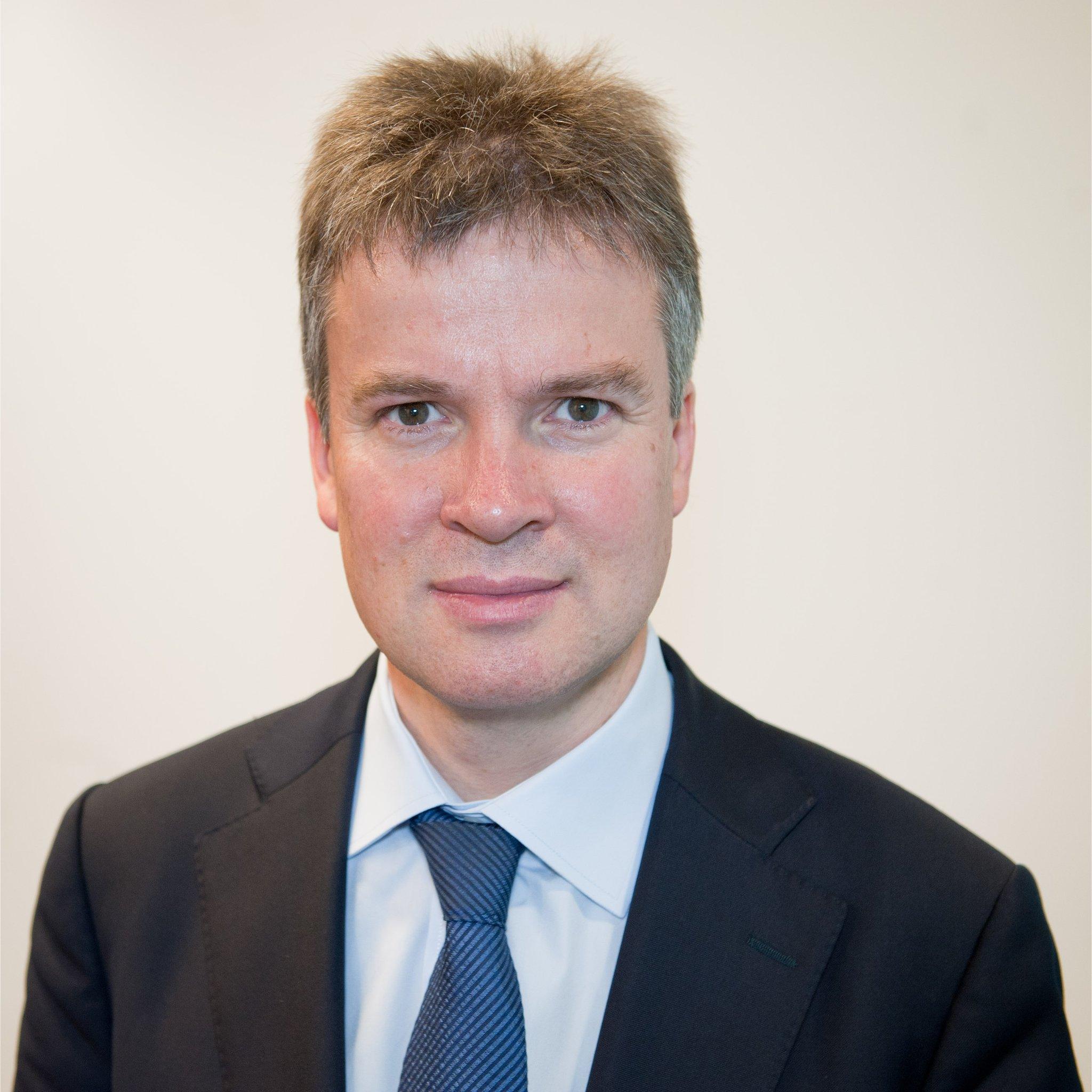Huawei leak row: PM advised to call in MI5 to investigate
- Published

Andrew Mitchell tells Newsnight security services may have to interview cabinet ministers sitting on the National Security Council
Theresa May has "no option" but to call in the security service MI5 to identify the source of a leak from the National Security Council, a founding member has said.
Conservative MP Andrew Mitchell told Newsnight MI5 and the cabinet secretary Sir Mark Sedwill may have to interview cabinet ministers who sit on the council.
The former international development secretary, who sat on the NSC between 2010-2012, spoke out following a leak from the council earlier this week.
The Daily Telegraph reported, external that cabinet ministers had clashed over the involvement of the Chinese telecoms giant Huawei in Britain's 5G network.
Downing Street declined to say on Thursday whether a leak inquiry had been launched and whether the police had been called in to investigate the leak.
The prime minister's spokesman said: "We won't comment on national security matters."
Senior Tories believe that potential leadership contenders - or their supporters - may have been behind the leaks to burnish their credentials by showing they are prepared to stand up to China.
The Daily Telegraph reported that Gavin Williamson, Jeremy Hunt, Sajid Javid, Liam Fox and Penny Mordaunt had all raised concerns about plans to give Huawei limited access to the 5G network.
Williamson denied any involvement in the leak. "Neither I nor any of my team have divulged information from the National Security Council," the defence secretary said.
Andrew Mitchell said he would advise the prime minister to hold a high level leak inquiry.
The former cabinet minister told Newsnight: "If I was advising [Theresa May] I would say to her that you have no option really prime minister but to call in the Security Service and the cabinet secretary who was also by happy coincidence the national security adviser should conduct an inquiry and find out the source of this leak."
Asked whether MI5 and the cabinet secretary would have to interview cabinet ministers who attended the meeting, Mitchell said: "Well they have a whole range of devices for identifying who it was who leaked and that might indeed involve having a discussion with those people who were at the table who could have leaked in this way."
Mitchell said that if a minister had been behind the leak they would probably lose their job.
'Very serious'
Leaking details from such a meeting would be a breach of the ministerial code and the privy council oath. An official who leaked could face criminal charges for breaking the official secrets act.
The former cabinet minister said the leak, the first from the National Security Council, was particularly serious because the body discusses highly sensitive issues with senior intelligence and defence officials.
"It is very serious because although cabinet always leak to an extent that is not [about] issues of national security. They don't really get discussed at the cabinet. The NSC, which we set up in 2010, is a wholly different animal.
"Of course you have all the agencies there. You have the people who run the military, the people who run the police - the people who keep us safe. They will be absolutely aghast at the National Security Council leaking because of course it is such a breach of every possible rule and etiquette that governs them."
As soon as he entered Downing Street in 2010, David Cameron set up the National Security Council to improve co-ordination between ministers and officials involved in diplomacy, intelligence and international aid.
Designed to avoid a repeat of the mistakes around the Iraq war, the NSC is run by a national security advisor.
Sir Mark Sedwill currently combines that role with his post as cabinet secretary.
You can watch Newsnight on BBC Two weekdays at 22:30 or on iPlayer, subscribe to the programme on YouTube, external and follow it on Twitter, external.
- Published28 January 2020

- Published25 April 2019

